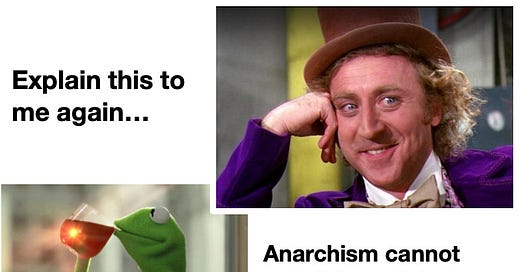Have You Heard? You're a Rotten Person Who Cannot Handle Freedom
If we're so rotten, how come our governments aren't? (DN 1.13)
Cover page | Preface | Introduction 1 | Introduction 2 | Introduction 3 |
(Part I) Why: 1.0 | 1.1 | 1.2 | 1.3 | 1.4 | 1.5 | 1.6 | 1.7 | 1.8 | 1.9 | 1.10 | 1.11 | 1.12 | 1.13
Keep reading with a 7-day free trial
Subscribe to The Freedom Scale to keep reading this post and get 7 days of free access to the full post archives.



